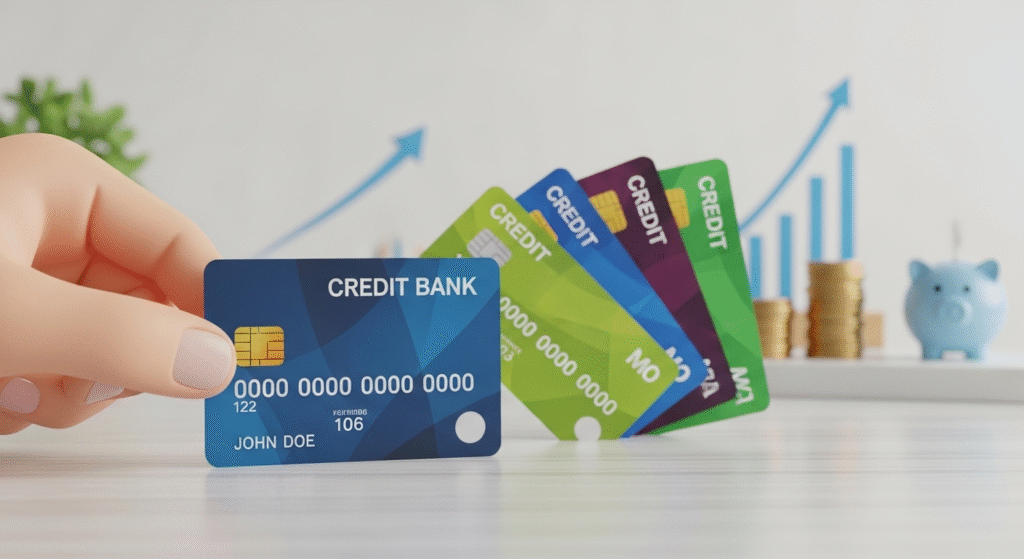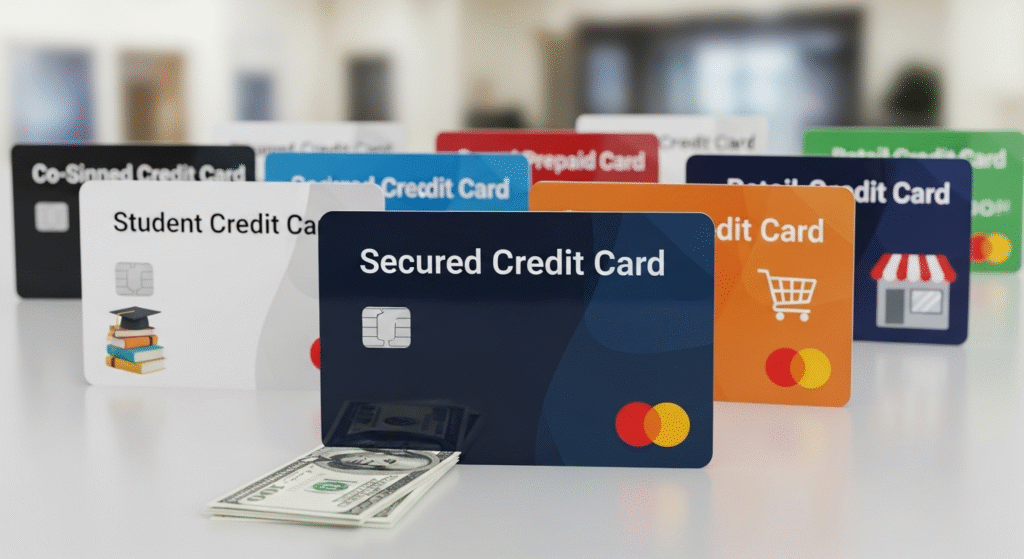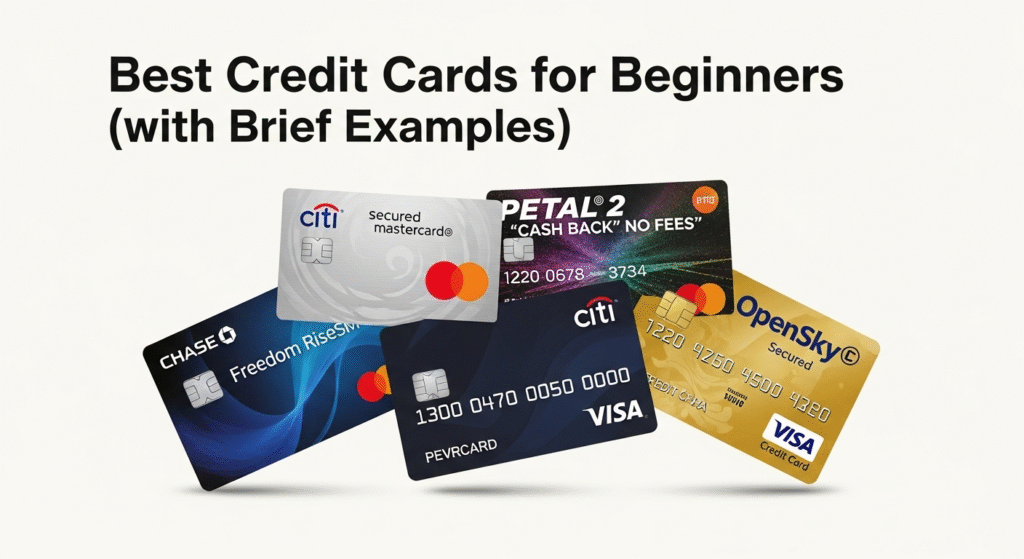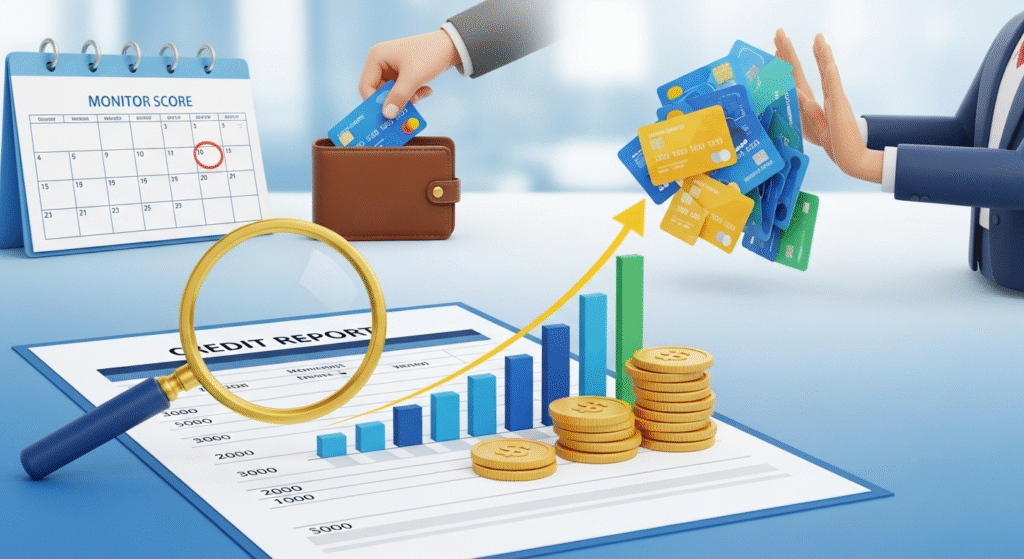
Credit cards are one of the easiest and most effective tools to start building your financial future. For beginners, choosing the right card can make all the difference between building strong credit and falling into debt. The key is to find beginner-friendly credit cards that are easy to qualify for, have low fees, and report to major credit bureaus. These cards help you establish a positive payment history and prove your financial responsibility over time.
In this guide, we’ll explore the best credit cards for beginners to build credit the right way. You’ll learn which cards to choose, how to use them wisely, and the most common mistakes to avoid as you begin your credit journey.
What Makes a Credit Card Good for Beginners?
When you’re new to credit, finding the right card can shape your entire financial future. The best credit cards for beginners are designed to help you build a positive credit history while keeping costs low and terms easy to manage. A good beginner card should have low or no annual fees, so you can focus on learning responsible usage without worrying about extra charges. It should also have simple approval requirements, making it easier to qualify even with limited or no credit history.
Another important factor is that the card reports to all three major credit bureaus — Experian, Equifax, and TransUnion. This ensures your responsible habits, like on-time payments, are recorded and help raise your credit score. Some beginner cards even offer rewards or cashback programs, allowing you to earn a small percentage back on everyday spending like groceries or gas. While these rewards may not be huge, they make responsible card use more rewarding.
Lastly, many beginner-friendly cards include tools to manage spending, such as budgeting apps, spending alerts, and educational resources. These features teach you how to maintain healthy financial habits. When combined with consistent on-time payments and smart spending, these features help new users build a solid foundation for future credit opportunities.
Types of Beginner Credit Cards

Understanding the different types of credit cards for beginners can help you choose one that best fits your financial situation. The first type is the Secured Credit Card, which requires a refundable deposit—usually between $200 and $500. This deposit acts as your credit limit and protects the lender. Secured cards are ideal for those with no credit or poor credit since approval is easier, and they report your activity to the credit bureaus.
Next are Student Credit Cards, made specifically for college students who may not yet have an income or credit history. These cards often offer small rewards, like cashback on textbooks or dining, and help students learn how to manage credit responsibly.
If you already have some credit history, an Unsecured Starter Credit Card may be a great fit. These cards don’t require a deposit and often come with low credit limits that can increase over time with responsible use. Retail Store Credit Cards are another option, usually easier to qualify for but limited to specific stores. They can help build credit but often have higher interest rates, so they should be used cautiously.
Best Credit Cards for Beginners (with Brief Examples)

Here are some of the best credit cards for beginners to help you start building your credit confidently:
- Discover it® Secured Credit Card – No annual fee, cashback on every purchase, and reports to all three bureaus. Ideal for those starting from scratch.
- Capital One Platinum Credit Card – No annual fee, automatic credit line reviews, and suitable for fair credit users.
- Chase Freedom Rise℠ – Designed for new users, offers cashback and free access to credit score monitoring.
- Citi® Secured Mastercard® – Helps build credit safely with flexible deposit options and reports monthly to bureaus.
- Petal® 2 “Cash Back, No Fees” Visa® – No annual or foreign transaction fees, ideal for beginners with little or no credit history.
- Bank of America® Customized Cash Rewards for Students – Cashback rewards tailored for student spending and easy account management.
- OpenSky® Secured Visa® Credit Card – No credit check needed, making it perfect for those who need a simple start to credit building.
How to Use Your Credit Card Responsibly?
Owning a credit card is a big financial step, but it comes with responsibility. The most important rule is to always pay your balance in full and on time. Late payments not only hurt your credit score but can also lead to costly interest charges. Setting up auto-pay or reminders ensures you never miss a due date.
Keep your credit utilization ratio under 30% — this means if your limit is $1,000, try not to spend more than $300. High balances can lower your credit score and make you appear risky to lenders. Avoid using your card for unnecessary purchases, especially if you can’t pay them off immediately.
It’s also wise to check your statements regularly for any errors or unauthorized charges. Catching mistakes early helps protect your credit and finances. With consistency, discipline, and awareness, responsible credit card use can quickly build your score, preparing you for bigger goals like car loans, mortgages, or business credit in the future.
Tips to Build Credit the Right Way

Building credit takes time, discipline, and consistency. If you’re new to credit cards, the key is to start small and build gradually. Begin by using your card for small, manageable expenses such as groceries or fuel. This helps establish a pattern of responsible usage without risking overspending. Always remember to pay off your balance in full each month to avoid interest charges and maintain a healthy credit score.
Make it a habit to monitor your credit score monthly. Many banks and card issuers offer free credit score tracking tools that show your progress and alert you to any changes. Keeping an eye on your credit report also helps detect potential errors or fraud early. After six to twelve months of consistent, responsible use, consider asking for a credit limit increase. A higher limit can improve your credit utilization ratio, making you appear more creditworthy—just be careful not to use the extra limit as an excuse to spend more.
Another key step is to avoid applying for too many credit cards at once. Each application results in a “hard inquiry,” which can temporarily lower your credit score. Focus on using one or two cards responsibly instead of chasing multiple offers. Over time, consistent payments, low balances, and mindful spending will strengthen your credit history. Building credit the right way isn’t about spending more—it’s about showing lenders that you can manage credit wisely and confidently.
Mistakes Beginners Should Avoid
When starting your journey with credit cards, it’s easy to make common mistakes that can slow your progress. One of the biggest errors is making only minimum payments. While it keeps your account current, it leads to accumulating interest and takes much longer to pay off your balance. Always aim to pay the full amount whenever possible.
Another mistake is overspending just to earn rewards. Cashback and points can be tempting, but if you’re not paying off the balance in full, the interest costs outweigh the benefits. Beginners should also be cautious about credit utilization — the percentage of available credit you use. Keeping it under 30% helps maintain a strong score. High utilization signals to lenders that you may be relying too heavily on credit.
Missing payments or paying late can severely harm your credit score and result in late fees. Even one missed payment can stay on your credit report for years. Set reminders or enable automatic payments to ensure consistency. Lastly, don’t close your oldest credit card accounts unless absolutely necessary. Length of credit history is a key factor in your credit score, and closing accounts can shorten it. Avoiding these mistakes will help you maintain steady progress toward excellent credit health.
When to Upgrade Your Credit Card
As your experience with credit cards grows and your credit score improves, you may reach a point where upgrading makes sense. Signs you’re ready for a better card include a strong payment history, low credit utilization, and improved credit scores over time. If you’ve been using a secured or beginner card responsibly for at least a year, it might be time to explore unsecured or rewards cards with more benefits.
Upgrading can positively impact your credit score, especially if the new card offers a higher credit limit or better terms. A higher limit can lower your utilization ratio, which is beneficial for your score. However, upgrading doesn’t mean applying for multiple new cards at once. Instead, contact your issuer to see if you can transition from your current card to a more advanced one—like moving from a secured card to a regular cashback card.
When you upgrade, keep your old account open if possible. This preserves your credit history length, which plays a significant role in determining your score. Be sure to read the new card’s terms carefully—look for changes in interest rates, fees, or reward structures. The goal is to choose a card that matches your current financial needs and spending habits. Upgrading your credit card at the right time shows that you’ve mastered credit management and are ready for greater financial opportunities.
Conclusion
Building credit is one of the most valuable financial steps you can take, and starting with the right credit card makes all the difference. By choosing a beginner-friendly option with low fees and responsible reporting, you set the foundation for a healthy financial future. Remember, the goal isn’t just to spend—it’s to build a positive track record that reflects reliability and discipline.
Stay consistent, make timely payments, and keep your balances low. Over time, your efforts will pay off with stronger credit, lower interest rates, and access to better financial opportunities. Good credit doesn’t happen overnight but with smart habits and patience, it becomes one of your most powerful tools for success.
FAQs
How long does it take to build credit with a card?
Building credit with a card usually takes around three to six months of consistent use. Paying bills on time, keeping balances low, and using your card regularly help establish a positive credit history. Everyone’s timeline is different depending on their spending habits and payment behavior. Staying disciplined and responsible can help you see gradual improvements in your credit score and financial opportunities within a few months.
Can I get a credit card with no credit history?
Yes, you can get a credit card even if you have no credit history. Secured credit cards and student credit cards are great options for beginners. With a secured card, you pay a refundable deposit that acts as your credit limit. Use the card responsibly, make timely payments, and keep balances low to build a strong credit profile. Over time, this helps you qualify for regular unsecured credit cards.
Does canceling a credit card hurt my score?
Canceling a credit card can slightly lower your credit score, especially if it reduces your total credit limit or shortens your credit history. Before closing a card, pay off the balance and consider keeping older accounts open to maintain your credit length. If you must cancel, choose newer cards with higher fees. Always monitor your credit report afterward to ensure the closure doesn’t affect your score negatively.
What’s the safest credit limit for beginners?
For beginners, a safe credit limit is typically between $300 and $1,000. The key isn’t how high the limit is, but how wisely you manage it. Try to use less than 30% of your available credit at all times. For example, if your limit is $500, avoid spending more than $150. Responsible use, on-time payments, and low utilization help you build trust with lenders and improve your credit score steadily.
How many credit cards should beginners have?
Beginners should start with one or two credit cards to keep things manageable. Having too many cards early on can lead to confusion and overspending. With one card, it’s easier to track spending, make on-time payments, and build a consistent credit history. Once you’ve shown responsible use and maintained a good score, you can consider adding another card to increase your credit limit and improve your credit mix gradually.
What are the easiest credit cards to get approved for?
The easiest credit cards to get approved for are secured credit cards and student credit cards. Secured cards require a small refundable deposit, which lowers the risk for lenders. Student cards are designed for young adults who are new to credit. Both options report to credit bureaus, helping you build a solid financial foundation. Choose one with low fees and use it wisely to grow your credit profile over time.